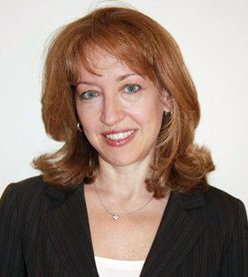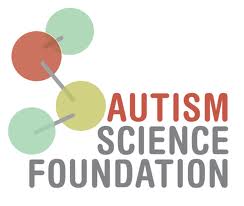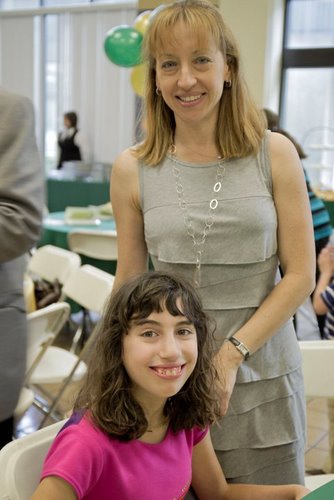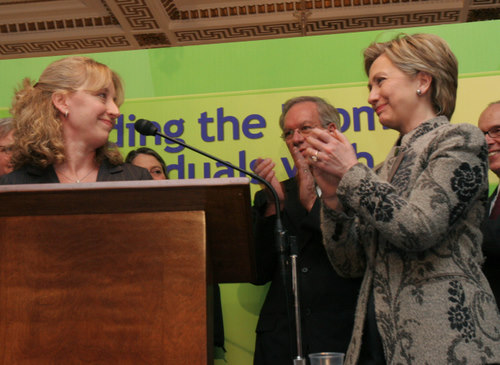- How Can You Financially Support Scientifically Rigorous Research In Autism?
- What Is It Like To Have A Family Member With Classical Autism?
- Discover How The Autism Science Foundation Chooses Projects To Fund
Full Interview Audio

Personal Info
Sports Teams:Washington Redskins, NY Mets
Favourite Books:
- Autism’s False Prophets: Bad Science, Risky Medicine, and the Search for a Cure by Paul A. Offit
- Predictably Irrational: The Hidden Forces That Shape Our Decisions by Dan Ariely
Most Influenced By:Her Mother, Her Daughters
Twitter: http://twitter.com/alisonsinger
Personal Blog: http://autismsciencefoundation.wordpress.com
Company Website: http://www.autismsciencefoundation.org
Interview Highlights
This is a condensed, lightly edited transcript of an audio interview. The full audio is available and highly recommended. The interviewee may post clarifications in the comments.
Adrian Bye: Today I’m here with Alison Singer, who runs the Autism Science Foundation. Alison, tell us about yourself.
Alison Singer: I am the founder and president of the Autism Science Foundation. We were founded two years ago to focus on funding for autism research. What I am most proud of is that we started funding science in our first year of operations, and we’ve increased our funding levels every year. In just two years of running the Autism Science Foundation, we’ve already funded just under $500,000 in scientific grants.
I’m very grateful for the tremendous support that the community has provided for the Autism Science Foundation. We couldn’t do any of this without our volunteers, our donors, and our friends in the media, particularly the social media. They’re the ones who make it all possible.
Adrian Bye: Can we walk through how this works?
Alison Singer: We believe that the greatest things we can offer our family members of autism are love and scientific research. When you think about it, research is what will help our children and our adults with autism to grow, improve and live the best lives possible. That’s really what they are entitled to, at the end of the day.
We raise money from the autism community, and from outside the autism community as well, and we use that money to fund all areas of autism research. We look particularly at what causes autism and how we can develop better treatments.
We have really focused in on funding young investigators. Pre- and post-doctoral students just beginning their careers in autism research, who have very new, very novel, and very exciting ideas for new ways to approach problems, and just need a little bit of money to get some preliminary data. Then our hope, and our expectation, is that they will take the preliminary data that is funded through our grants and they will leverage that into much larger NIH grants.
We think it’s very important to be building a pipeline of researchers. We’re not going to find the answers in five years. We need to be making sure that we are encouraging young scientists to study autism as opposed to studying other diseases. Sometimes, by being able to offer them a grant, pairing them with a well established scientific mentor, and encouraging their career, we are able to attract the best and the brightest into autism research. That’s what it is going to take. We need the smartest people working on these issues, because the issues are very challenging.
Adrian Bye: What are the types of people that tend to come and give to you? How much do they give?
Alison Singer: We have donors who have given donations from $5 to $50,000. Any donation is very welcome. What we are able to offer is the opportunity to pool funds and then have the grants evaluated by our scientific advisory board, which is comprised of the top autism researchers from around the world. That way we’re able to select the best studies and make sure that our funders are donating to work that is really going to have impact.
We encourage donors who are interested in rigorous research to take a look at what we’re funding on our website. What differentiates us from other autism organizations is that our focus is on funding the research and on disseminating the research, and that’s a critical component. A lot of research is being done now, and a lot of great information is coming out of the research that has been funded, but it doesn’t do anyone any good if people don’t know about it.
As new treatment protocols are being developed, families need to know about them, so that they can contact their school districts, or they can talk to teachers. We do that through our website, we do that through all of our social media activities, we do that by sponsoring conferences for parents and conferences for special educators.
Whenever we look at what we’re funding, we make sure that there is real value for families. As part of the application process, we ask the scientists to say how will the information that comes out of this study help real people? What we’re interested in, as a caring and family based access group, is how will this new science change people’s lives for the better? And how we can help people to know what’s going on in the scientific community, so they can implement the new evidence based interventions.
Adrian Bye: What is the typical grant size?
Alison Singer: Our pre-doctoral grants are between $25-30,000 and our post-doctoral grants are between $35-40,000, each year.
Adrian Bye: You review their application with your body of scientists?
Alison Singer: The Scientific Review Board, and the grant review committee looks at all the applications. They basically score them, and every year we get many more applications that score in the fundable range than we are able to fund. So often, great projects are left on the table unfunded. I consider that my personal challenge. I would like to get to the point where all of the grant applications that score in the fundable range are able to be funded.
We are now in the position in the autism research community where there is more great research waiting to be done than there is money to fund it. That is what motivates me from a fundraising point of view every day. I want to raise enough money to fund all the research that needs to be funded.
Adrian Bye: This is a personal thing for you, because you have a brother and a child on the spectrum.
Alison Singer: I have an older brother who is diagnosed with autism, I have my 14 year old daughter, Jodie, who is also diagnosed with autism, and I have another daughter, Lauren, who is 12 years old. I’m really motivated by all three of them, as well as by all of the families that I talk to every day.
Adrian Bye: Are they on the classical end of the spectrum?
Alison Singer: My brother has had a very challenging life. He was diagnosed in the 1960s, and my mother was basically told that he was autistic because she was a bad mother, and that she should try harder with her other child, which was me. When he was diagnosed, there were no laws to protect him or even send him to school. He never learned to speak, never learned to communicate in any way, and is severely challenged. I always wonder what his life would have been like if he had had access to early intervention or even had had the opportunity to go to school.
The message I always try to communicate to people is the learning window doesn’t magically close when children turn 3 or 5 or 21. My brother, he wasn’t even toilet trained until he was in his 30s. But now we’ve accomplished that, and he’s able to participate in a program where he delivers Meals on Wheels to homebound senior citizens, 3 mornings a week. He’s now a contributing member of the community, but he never would have had that opportunity if we had given up on teaching adults new skills.
Adrian Bye: The work that you fund, do you fund more on the low end of the spectrum or the high end of the spectrum?
Alison Singer: We fund the best studies. When the studies come in, we look for which are the most scientifically meritorious, and which are most likely to produce information that is of real value to families.
We have funded grants that look at language development, social functioning, and stereotypical behavior. We definitely need more research to understand what causes autism. Then, we need to start to move from what causes autism into how we can take what we’ve learned, and translate it into treatment. That is the area of autism research that is hugely promising. It is taking all of the genetics work that we have invested in over the last 10 years, and really using it in a scientifically rigorous way to develop treatments.
Adrian Bye: Why is there so much drama in autism?
Alison Singer: I think it’s because as parents we love our kids so much, and we love our family members so much. It’s very hard to accept that your child is going to struggle and have all these challenges. I think it’s natural to want to blame someone or something as being the cause, and sometimes that does come across as being very dramatic.
What we always encourage parents to do is to look at the data. You can’t be so focused on your anger that you lose sight of what the science is saying. We have to keep in mind, children with autism, like all children, develop. Autism is a developmental disability, so children are going to improve, and we certainly have to look for evidence-based treatments to encourage that and to move the process along more quickly. Some of the dramatic stories that you hear in the press about risky unproven therapies, that really have no history of efficacy and can sometimes do real harm to children. There is an opportunity cost here, especially when some of these therapies divert time and energy away from proven therapies.
One thing that I find interesting in our community is the huge placebo effect that we are now seeing in so many of the treatment trials. Parents will say that their kids are benefiting from a treatment, but often parents of kids on a placebo report even better outcomes than the kids that are receiving the intervention. Again, I think this is because we love our kids so much, and we want them to improve, but it really speaks to why it’s so important to have rigorous, double blind, placebo controlled trials of these interventions.
Adrian Bye: My understanding is for the vaccine area, there hasn’t been a proven connection after a lot of research. Which doesn’t mean there isn’t a connection, it just means that, after a huge amount of research, there hasn’t been one that has been able to be found. Is that accurate?
Alison Singer: You can’t prove a negative. You will never be able to fund a study that proves that something does not cause something. That’s just not how science works. When you look at the vaccine studies, you have to look at the mountain of evidence. We now have over 2 dozen studies.
You can look at this question in a scientifically rigorous way. You can say let’s look at children who got MMR, and children who didn’t, and see if there is a difference in the rate of diagnosis of autism. Let’s look at children who received vaccines that contained thimerosal, versus children who got less thimerosal in their vaccines. Let’s look at children who were vaccinated according to the CDC scientific schedule, and children who were vaccinated on a different delayed schedule, let’s see if there is any difference in their neurological outcomes.
The good news is that these are questions that can be answered by science, and fortunately, now they have been. Many times over. The question really becomes an issue of being willing to accept what the science tells us. All of the studies have come back showing that there’s no relationship between MMR and autism, between thimerosal and autism, and there is no difference in neurological outcomes for children who receive their vaccines according to the CDC schedule versus children who were delayed or who didn’t get vaccines.
Adrian Bye: Is it the same sort of response in terms of gluten and casein free diets?
Alison Singer: There are not as many studies of the gluten free diet, but there was a study presented two years ago, at the International Meeting for Autism Research. It showed that children with autism who were on the gluten free diet had no difference in neurological outcomes than children who were on a regular diet. What the studies have shown is that children who are on a dairy free diet have lower bone density. So, you are introducing some other issues by withholding gluten and casein.
What we have to do is look at these questions in rigorous ways. We are, and those are the types of studies that we want to fund. Those are the types of studies that hold real value for families.
When you look at a treatment intervention, or when you look at an intervention that families are already using, and test for efficacy, however that study comes out, we are providing actionable and usable information for parents. When you show that an intervention is non-efficacious that’s as valuable to families as showing an intervention is efficacious, because you will spare that family, and the person with autism, the time, the energy and the side effects of trying that intervention.
Adrian Bye: What are some other promising areas of research?
Alison Singer: The most promising area of research has to do with taking the genetics studies and transferring them into science based intervention. Another area that is incredibly promising is we are now moving into conducting intervention trials in the places where people with autism live, work and go to school.
We’re funding a great one in Philadelphia, where we’re testing a social skill intervention in a school at recess using the existing personnel. If it works, it can be rolled out across the country in a very cost effective way. You don’t have to hire psychologists, you can do these interventions with classroom aides. That’s the type of thing that has real world application. When you are studying interventions that are expensive, you have to sit back and say even if this proves to be efficacious, no-one is ever going to be able to use it. So, what is the value?
Adrian Bye: Is there anything else you’d like to talk about before we wrap up?
Alison Singer: I always like to encourage everyone, not just parents, to learn the signs of autism. Every parent knows the physical milestones, but it’s just as important to know the developmental milestones. All of the early warning signs are listed on the Autism Science Foundation website. Early intervention is still the best weapon we have against preventing the most debilitating aspects of autism from ever surfacing in the first place.
That would be my closing point. If you are a parent and you are concerned or you suspect, don’t wait, talk to your doctor.









